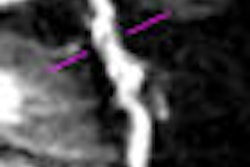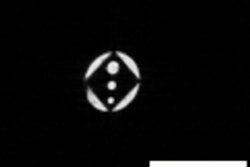MDS Nordion of Ottawa is again urging Atomic Energy of Canada (AECL) to complete and bring online the two Maple nuclear reactors to help solve the medical isotope shortage.
The MDS Nordion proposal outlines technical and regulatory requirements needed for the provision of a secure supply of medical isotopes for the healthcare system in Canada and around the world.
With expertise and guidance from the South African Nuclear Energy Corporation (NECSA), owner and operator of the Safari-1 reactor, and working with AECL, MDS Nordion believes a solution could be achieved in an estimated 24 months.
Under MDS' plan, the company would use computer codes already employed by the Safari-1 reactor and the High Flux Reactor in Petten, Netherlands, to resolve the problem that has stalled the Maple project. There is a discrepancy between the predicted and measured value of the power coefficient of reactivity (PCR) of the Maple reactors, which has prevented them from being licensed by the Canadian Nuclear Safety Commission.
When fixed, the Maple reactors would replace the Chalk River nuclear reactor, which has been offline for repairs since May. AECL does not expect the facility to come back online at least until late this year.
MDS Nordion also is proposing the construction of a fully licensed production facility to manufacture technetium-99 generators for distribution to Canadian hospitals in all regions of Canada and abroad.
MDS Nordion would build, operate, and maintain the generator production line, as well as perform all necessary activities including provision of licensed packaging, consumable supplies, and transport logistics to all Canadian healthcare centers.
In response, AECL said there are significant technical and regulatory hurdles that require, in the best-case scenario, at least five to six years of intensive research and analysis before it can consider bringing the Maple reactors online.
AECL also noted the PCR issue. The reactors were licensed by the Canadian Nuclear Safety Commission to operate with a small negative PCR, which requires the core reactivity to decrease as power increases. In June 2003, commissioning was put on hold when test data analysis indicated the reactor had a small positive PCR.
According to AECL, scientific analysis, consultations with the Korea Atomic Energy Research Institute, and tests conducted between June 2003 and May 2008 could not resolve the PCR issue.
In addition, AECL said neither it nor the Brookhaven National Laboratory, Idaho National Laboratory, or Invap of Argentina were able to determine the cause of the positive PCR.
Related Reading
MDS urges Canada to complete Maple project, July 9, 2009
Canada still unsure on isotope reactor repair plan, June 26, 2009
Canada may open isotope project to private sector, June 19, 2009
Canada wants Chalk River online ASAP, June 19, 2009
Canada cites dangers in abandoned isotope reactors as major reactor remains down, June 16, 2009
Copyright © 2009 AuntMinnie.com




















